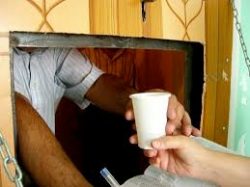Types of Treatment Centers for Opiate Addiction
Opiate addiction is a very prevalent addiction in the United States. Many consider it an extremely dangerous drug. According to the Centers for Disease Control, opiate overdose is now an epidemic. One of the greatest dangers of opiate use is overdose. This is why you should seek treatment as soon as possible for your opiate addiction. There are types of treatment centers for opiate addiction to choose from.
Inpatient Treatment Centers

Inpatient Methadone treatment centers offer constant care.
Inpatient treatment centers are residential centers that offer almost all forms of drug addiction treatment. This is the classic type of addiction rehab. The treatment center provides a place to sleep, food, and other basic services in addition to addiction services while you are there.
In inpatient care:
- you meet with counselors,
- engage in group support,
- do self-esteem building,
- engage in activities offered by the center,
- participate in medical detox, and
- receive other forms of treatment.
- There are two basic types of inpatient treatment centers.
Inpatient Locked Treatment Centers
Locked treatment centers are centers that you are not allowed to leave. Once you are there and the treatment begins, you cannot leave until you are released by a doctor. Locked centers are sometimes court ordered, family ordered, or voluntary. The difference between a locked center and other centers is that you cannot just decide to stop. They offer all of the same services as other centers, these services are just not voluntary.
Inpatient voluntary Treatment Centers
Voluntary treatment centers are centers that although leaving is discouraged you can do it. You are there voluntarily and can leave at any time. Most voluntary centers make you start your treatment over if you do decide to leave for any length of time. In addition, if you leave during court ordered voluntary treatment, you have to start treatment over. The majority of the treatment centers are voluntary although leaving is highly frowned upon. The reason you are there is to seek treatment for an addiction, leaving treatment halfway through is counterproductive.
Both voluntary and locked facilities are relatively expensive when compared to quitting opiates cold turkey. The expense is usually worth it because inpatient treatment has a high success rate.
Inpatient treatment has many benefits including:
- You are away from your environment, the environment that caused the drug use,
- It is usually intensive treatment,
- You have peer support,
- You are not around your triggers until after you learn to deal with them, and
- You are able to focus only on your recovery without outside interference.
Of course there are disadvantages to inpatient treatment as well. These are:
- You are away from work and school,
- Although visits are allowed you lack the support of your friends and family, and
- Some people find it too restrictive.
There are many inpatient treatment centers available and many of them specialize in treatment for opiate addiction.
Outpatient Treatment Centers
Outpatient treatment centers offer all of the same things as inpatient centers only without staying at the facility. Instead, you attend treatment daily, weekly, or monthly depending on your level of treatment. Most opiate treatments start out daily, move to weekly, and eventually monthly. The visits include:
- counseling,
- positive behavior building,
- medication management,
- group counseling, and
- other forms of therapy.
Much like inpatient treatment, there are advantages and disadvantages to outpatient therapy. Some of the advantages are:
- the freedom to come and go as you need to,
- you can still work or go to school while in treatment,
- family and friends are there to help,
- less expensive than inpatient treatment, and
- it is easier to tailor treatment to your needs.
Some of the disadvantages of outpatient treatment include:
- continued exposure to triggers,
- easy to miss or cancel appointments and fall out of treatment,
- easier to relapse, and
- is still expensive.
Outpatient treatment is usually preferable if a person is a single mother, has a job they cannot leave, or has children.
Holistic Treatment Centers
Holistic treatment centers come in both inpatient and outpatient varieties. These treatment centers offer holistic practices rather than the traditional medications. Although many traditional treatment centers are offering holistic treatment, a completely holistic center offers only holistic treatments. Some examples of holistic treatment center services are:
- massage,
- alternative counseling,
- yoga,
- spiritual practices,
- animal therapy,
- art therapy,
- activity therapy,
- music therapy,
- qigong, and
- other holistic treatments.
Holist therapy centers have both inpatient and outpatient treatment options. Many holistic centers also have doctors and other medical personnel on staff to help people with their recovery. Holistic therapies are becoming more accepted as their practices become more mainstream. Even the American Psychological Association recognizes holistic therapies as beneficial for treating patients.
Combined Treatment Centers
Combined treatment centers offer inpatient, outpatient, and holistic therapies. Combined treatment starts with inpatient treatment and then they continue treatment in outpatient treatment. Holistic practices might be brought into either stage of rehab. This type of treatment has the least chance of relapse but is also generally more expensive than both inpatient and outpatient treatment.
No matter what type of treatment you choose, there is help for an opiate addiction. Each course of treatment should be designed for the individual. There is no such thing as one size fits all when it comes to addiction. For more information on opiate addiction treatment, or to get help call 800-994-1867Who Answers?.